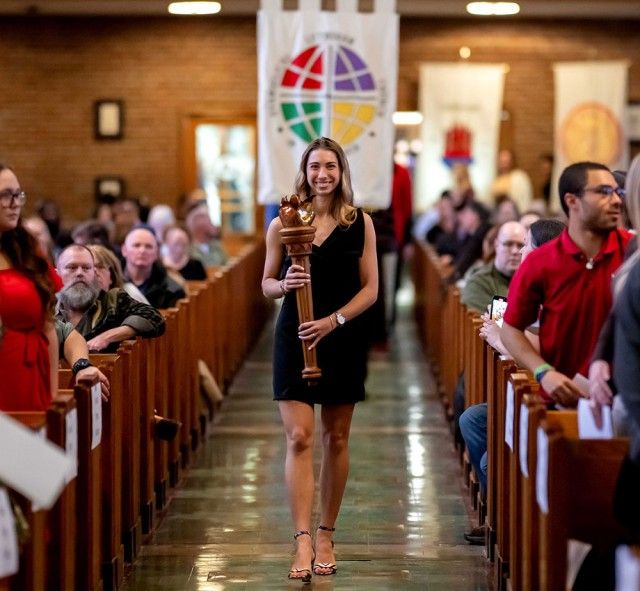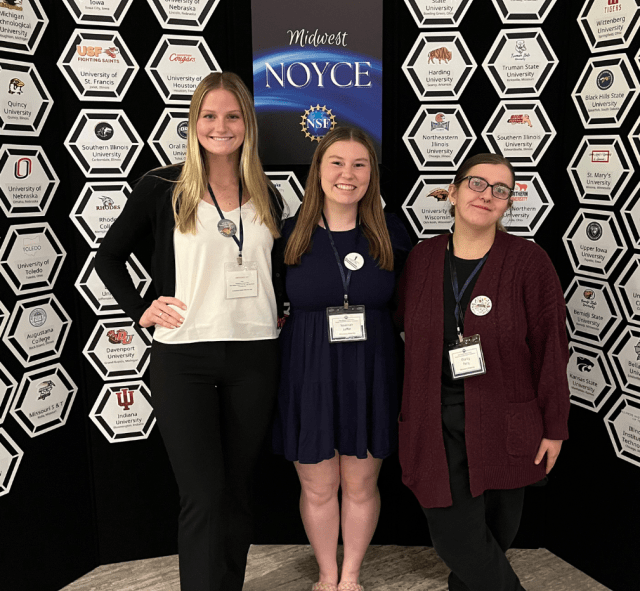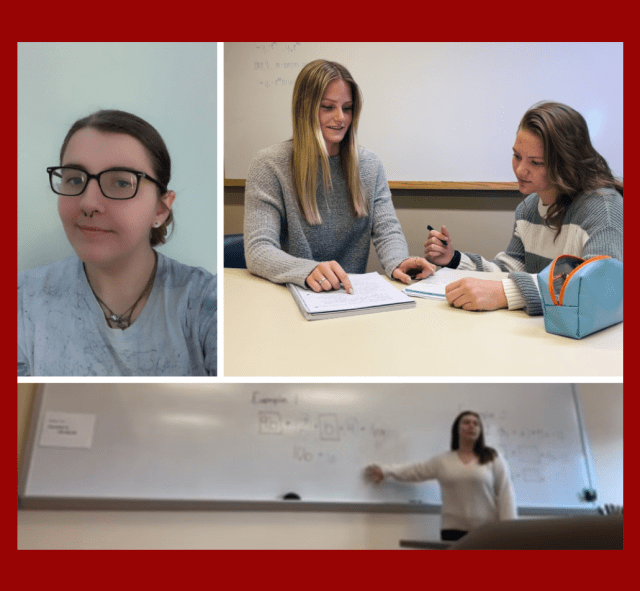With Halloween just around the corner, Wittenberg students recently explored the realms of the unknown by taking a ghostly one-mile tour of Springfield on Oct. 7.
The ghost tour, organized by the National Trail Parks & Recreation District (NTPRD) in Springfield, was for students in Wittenberg’s Religion 120 course, Demons, Angels, & Ghosts, taught by Travis Proctor, assistant professor of religion.
“The course explores how various religions and cultures have conceived of good and evil spirits, and how those ideas can give us insights into cultures from across the globe,” Proctor said. “We always take time to explore local histories of demons, angels, and ghosts, and one of the highlights is taking the students on a local ghost tour of Springfield.”
In partnership with the Springfield Arts Council, the tours provide information on local legends and folklore, and tales of mystery and ghosts blended with historic facts, according to the NTPRD website. Tours are led by 19th-century costumed guides with a lantern to light the way through downtown Springfield.
“With the ghost tour, we encounter ghost tales local to Springfield and come to learn about what has been ‘haunting’ Wittenberg’s home city,” Proctor added. “This year, we heard stories regarding disappearing mobsters, scorned lovers seeking revenge in the afterlife, and about a ghost that terrorized motorists on the National Road. Through these stories, students learn about the history of Springfield, such as its background as a hub on the National Road, or important figures in its civic history, and so on develop closer connections to the city. They also begin to learn how ghost stories can yield important lessons about the people who tell them.”
The tour often prompts students to ask even more questions about Wittenberg, the City of Springfield, and its surrounding communities.
“One of the central questions that the class asks is, ‘what haunts certain cultures and societies, and why?’ For example, why do many ghost stories in America, including one tale related to Wittenberg, feature spirits from the Civil War era?” Proctor said. “Or why, across cultures, are ghosts often conceived of as spirits who have ‘unfinished business?’ One explanation we explore in class is that ghost stories provide opportunities for the living to sort through the things that ‘haunt’ them, such as war, lost loved ones, or unsavory events from the past.”








